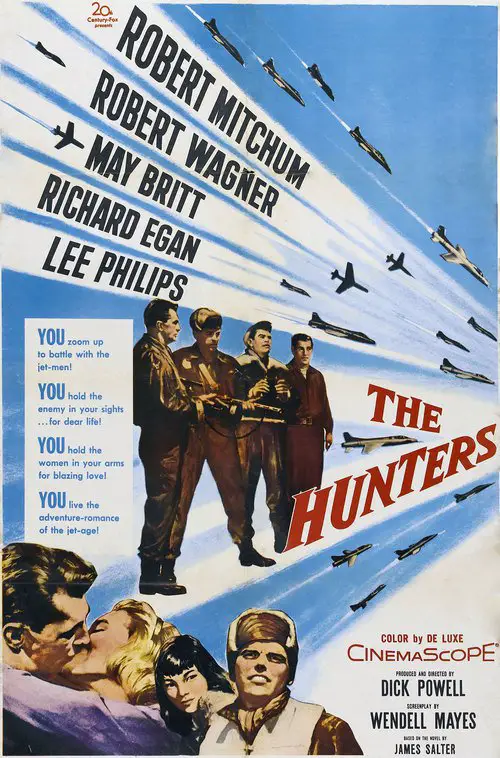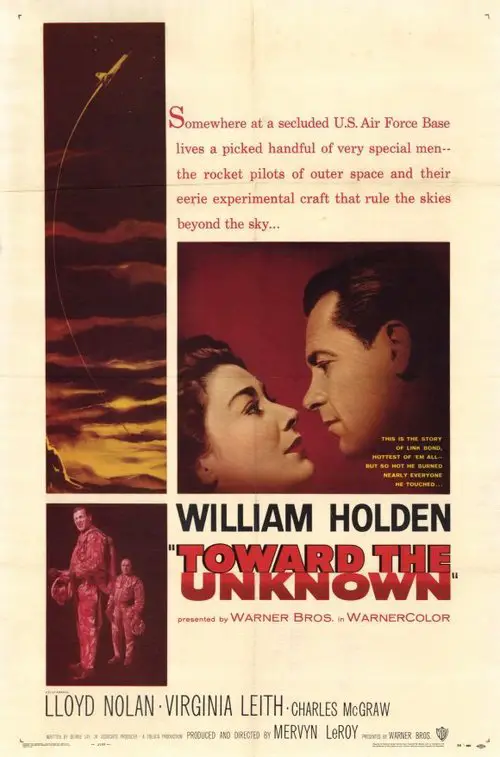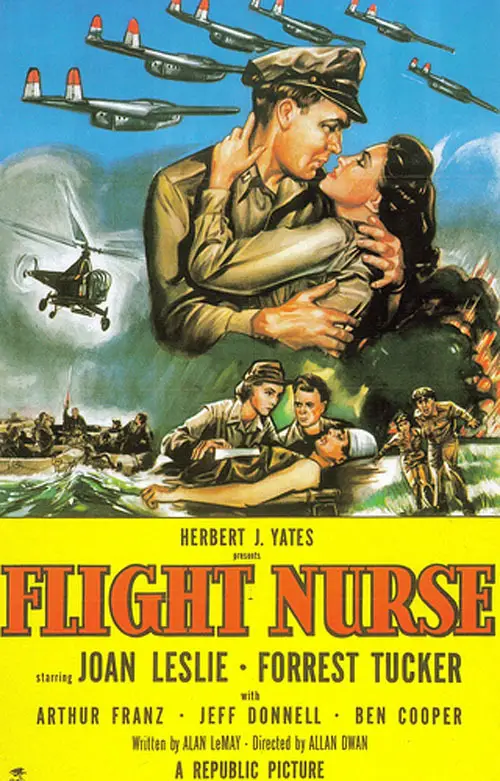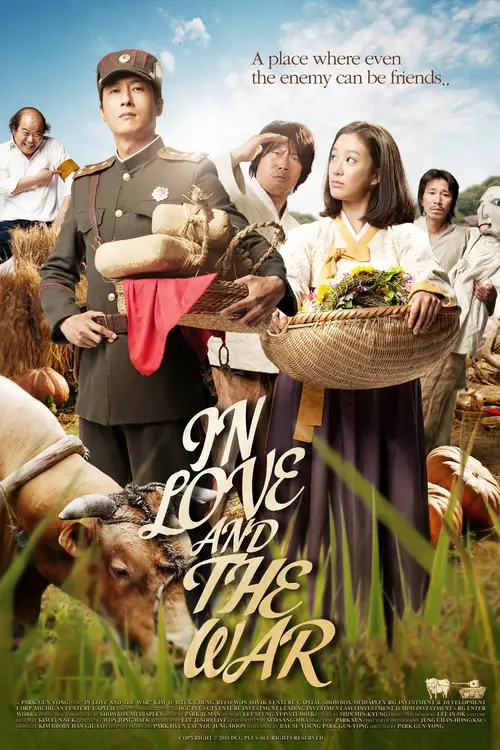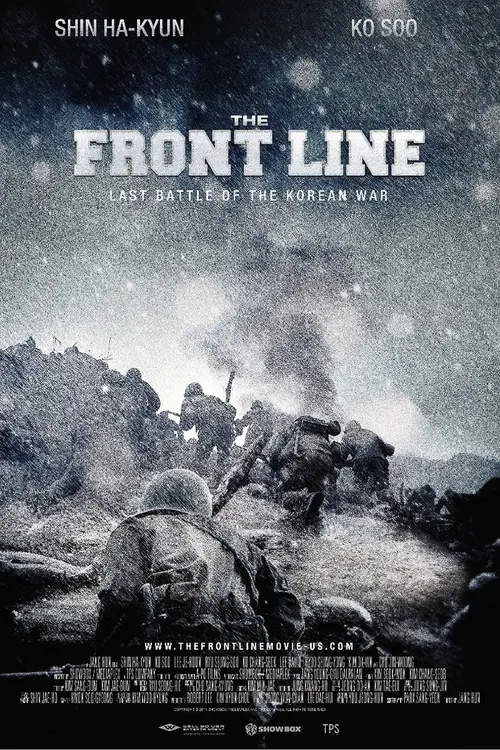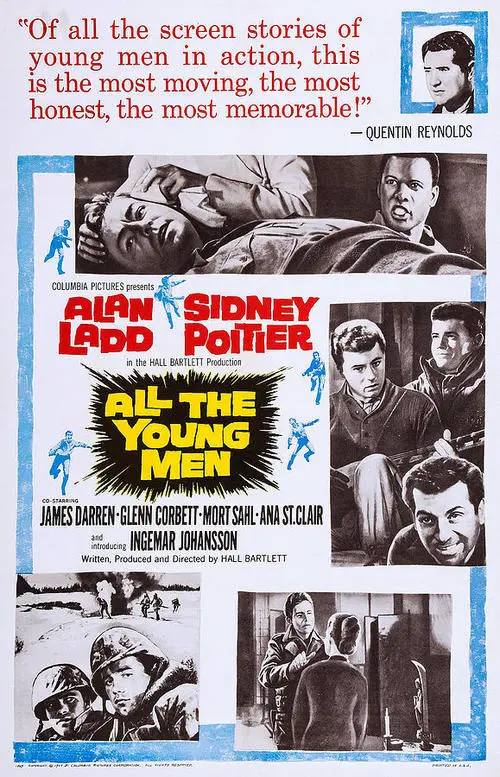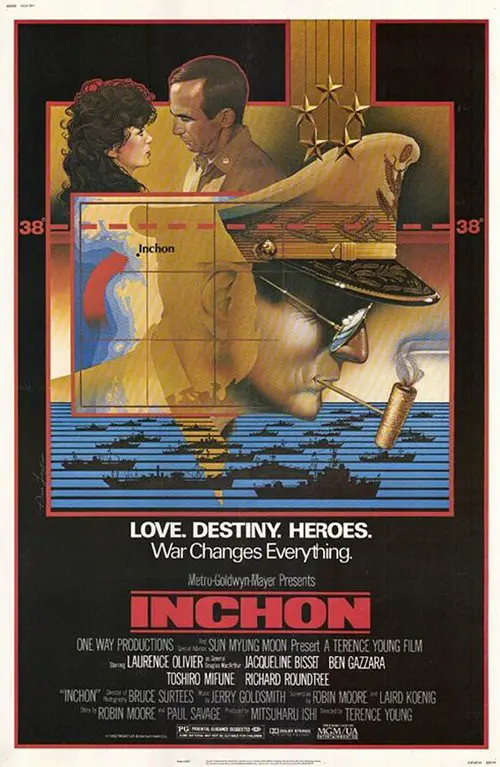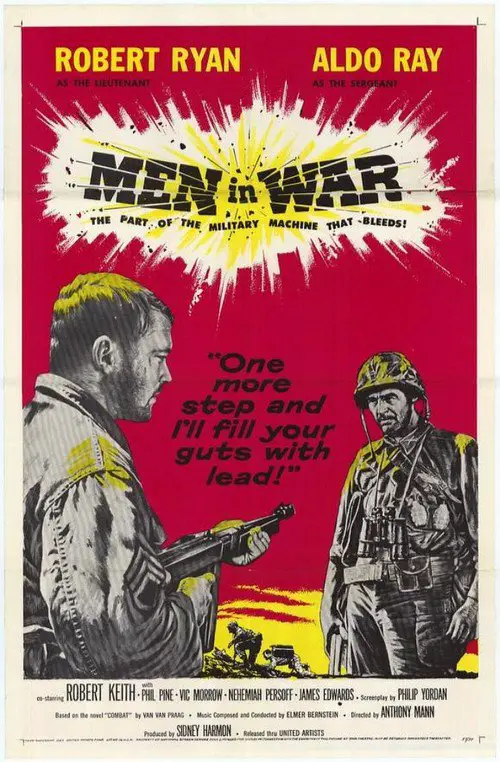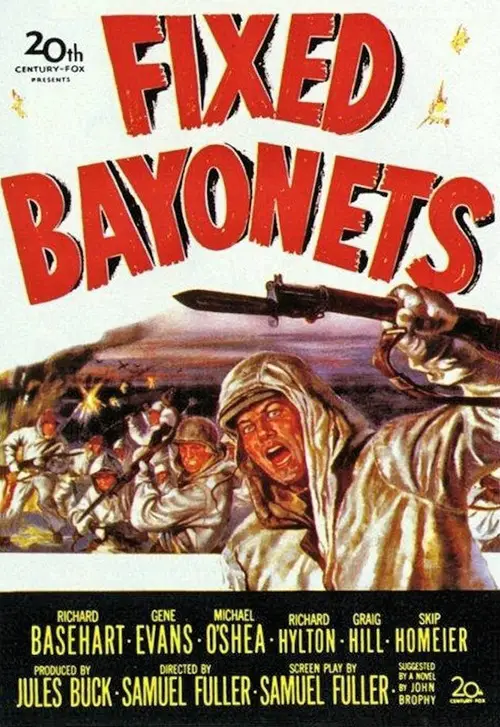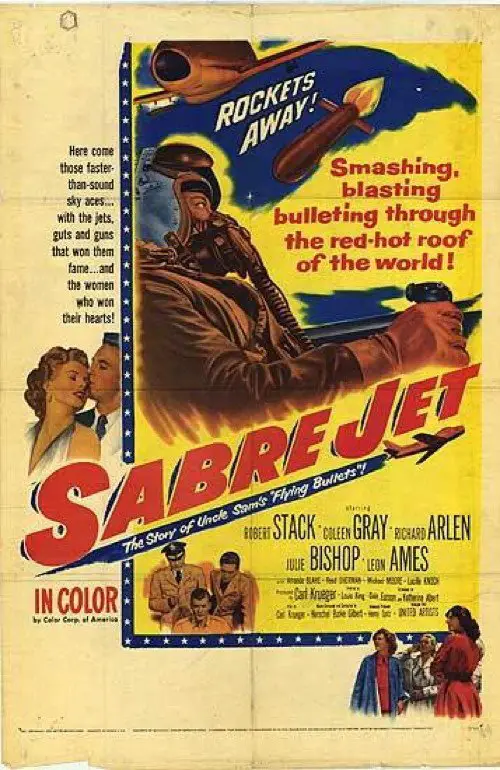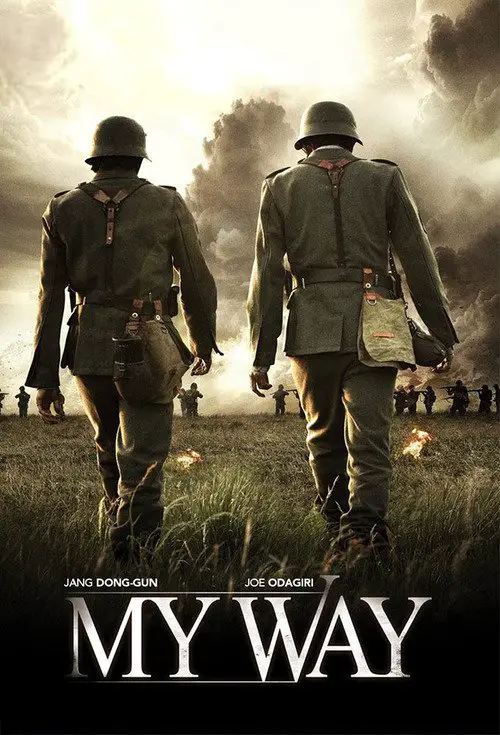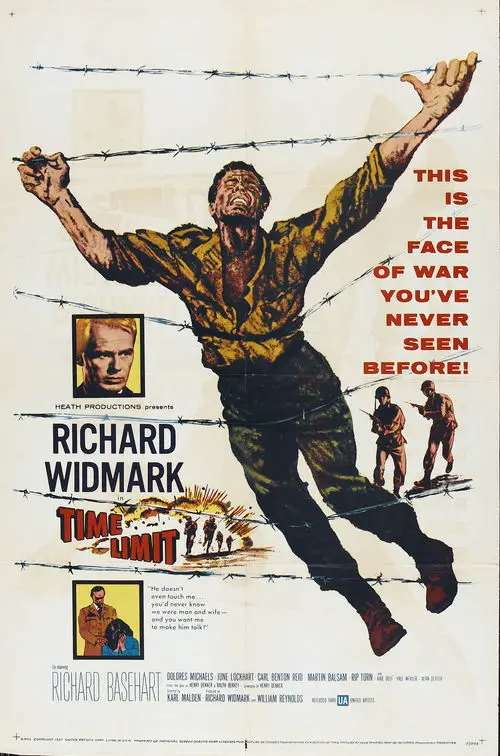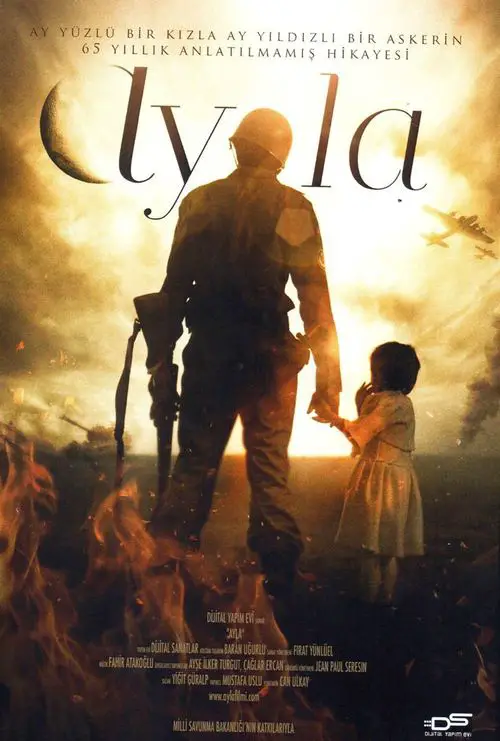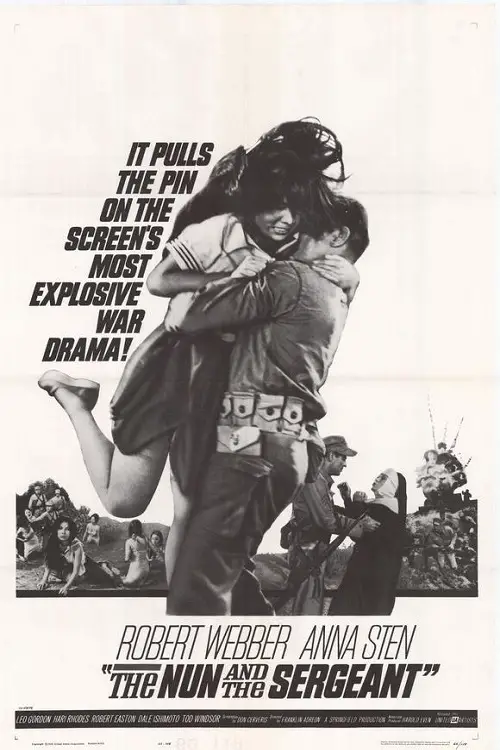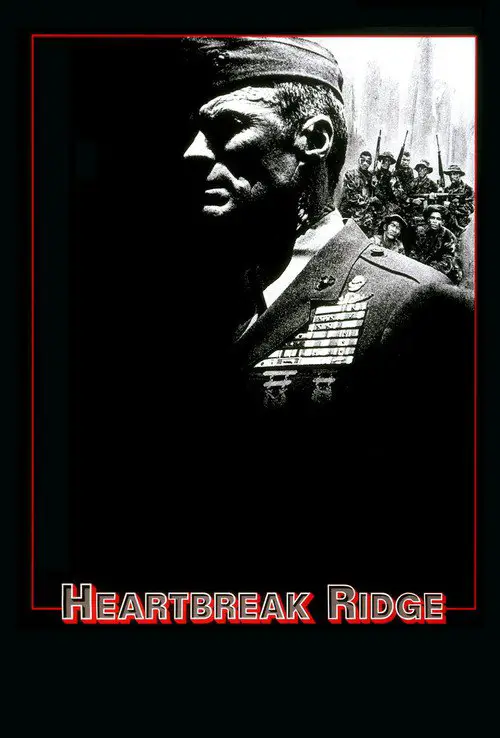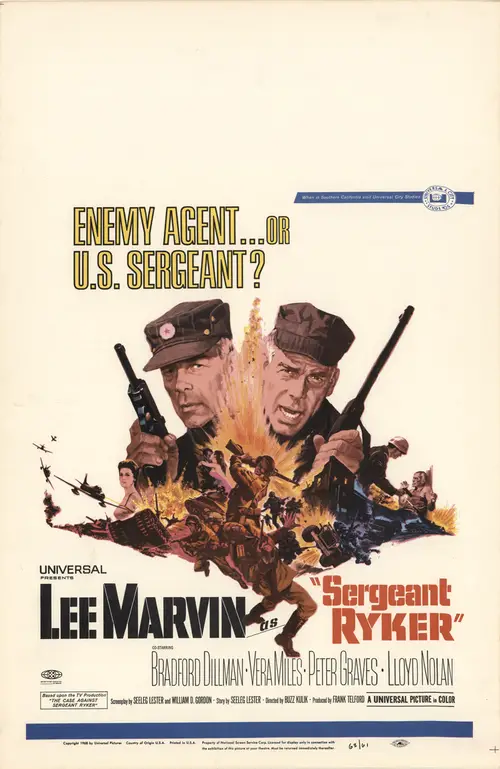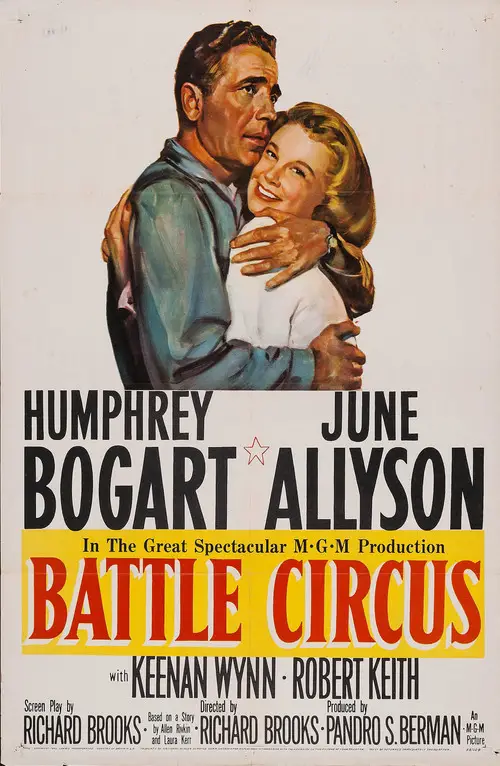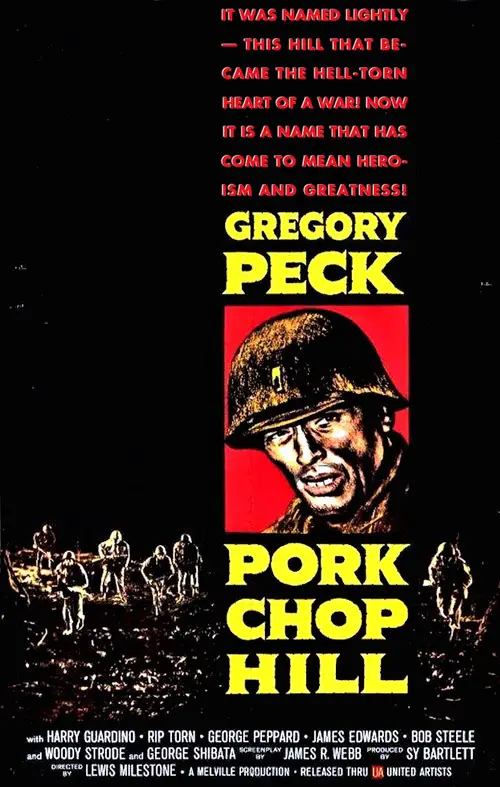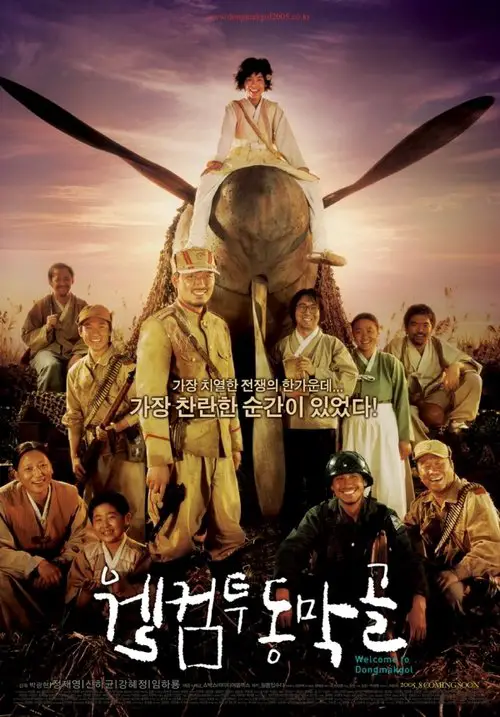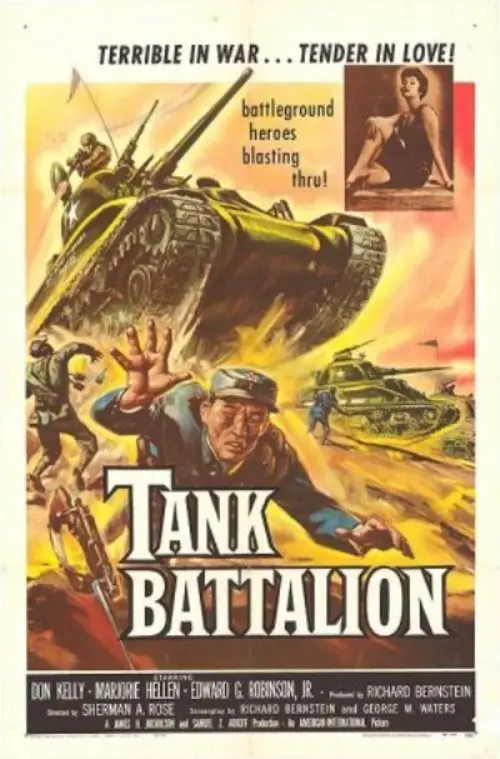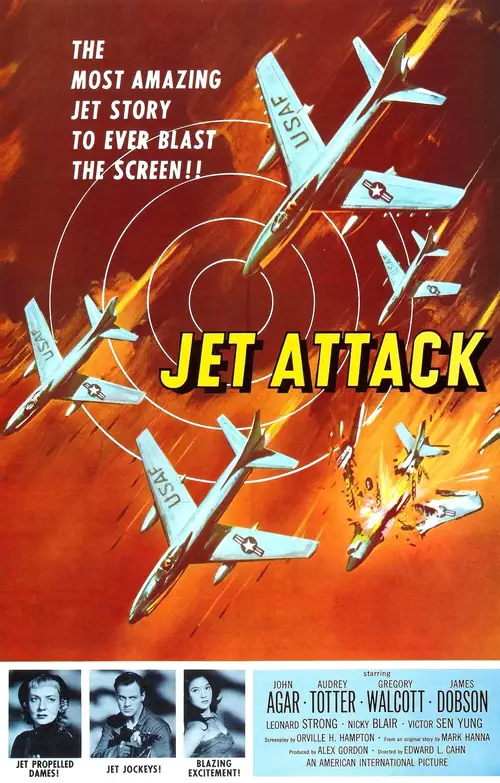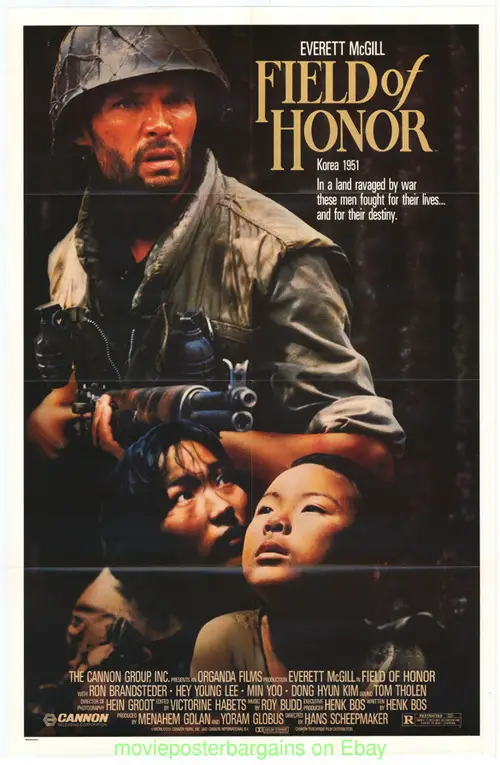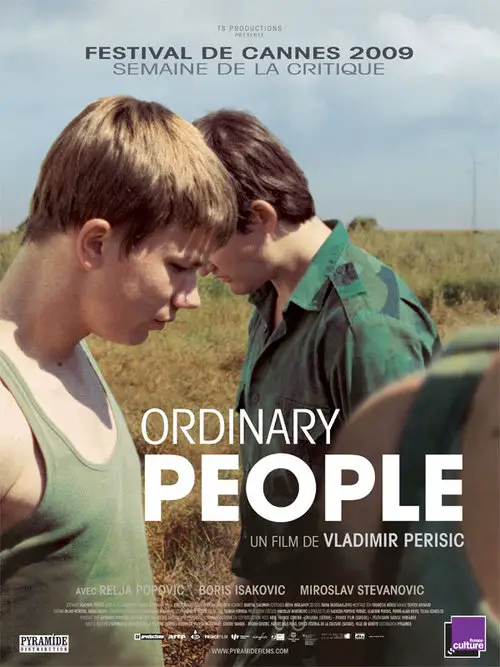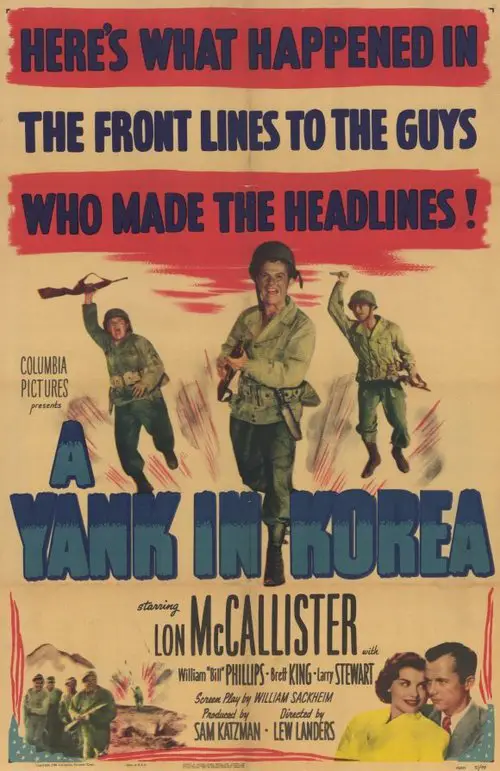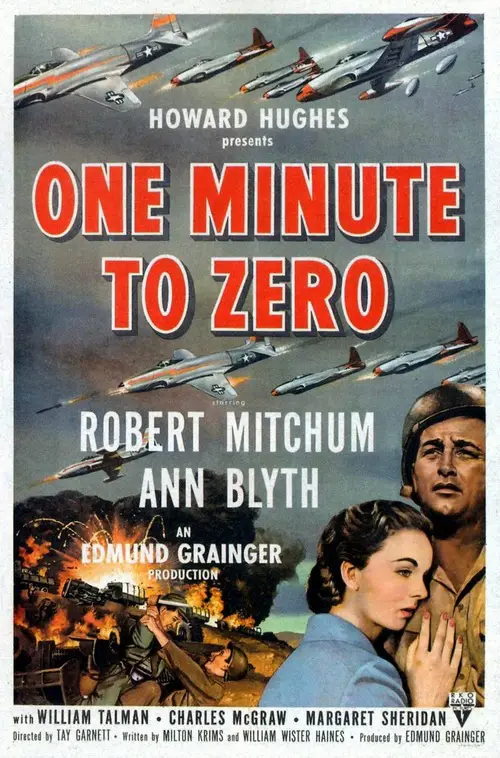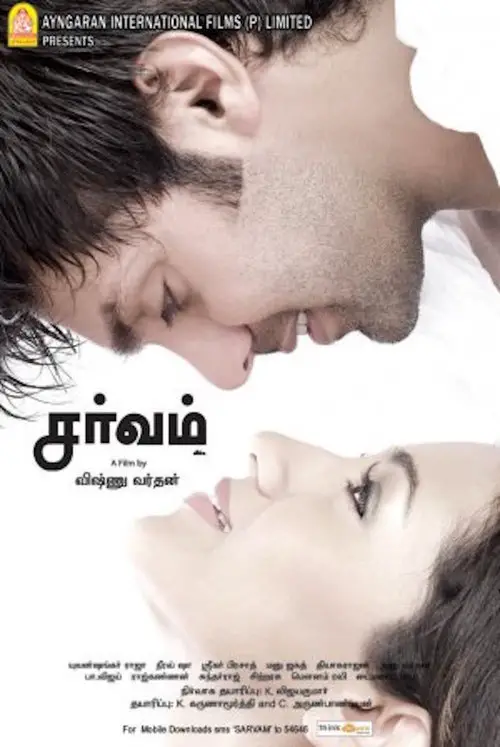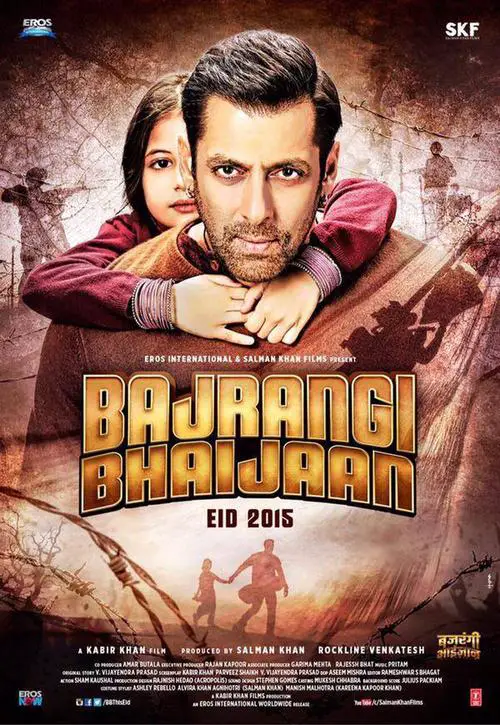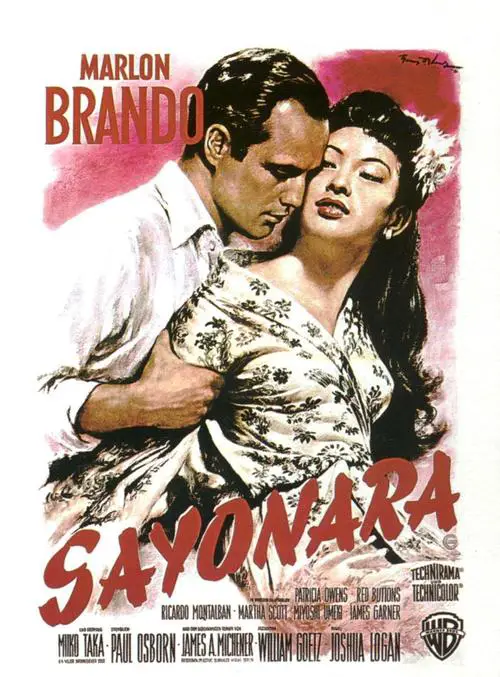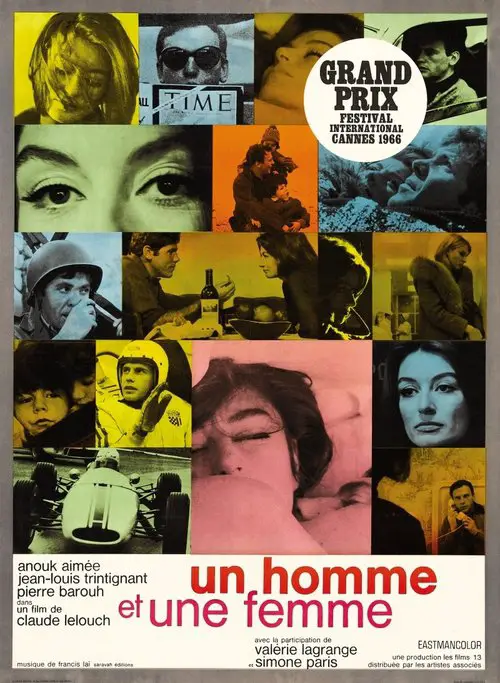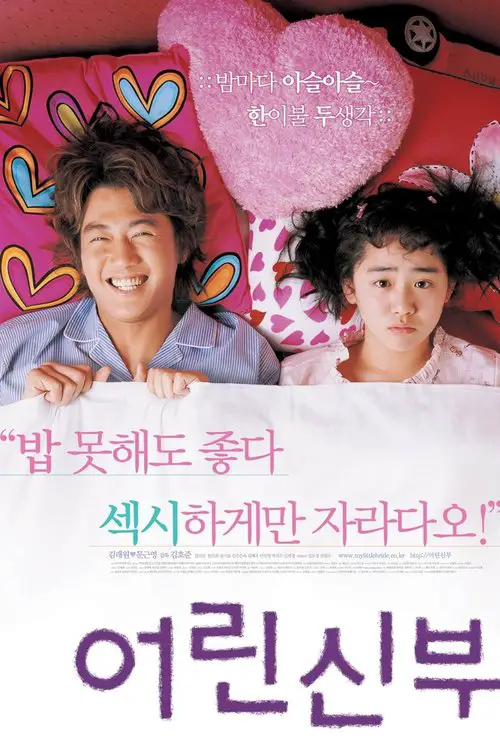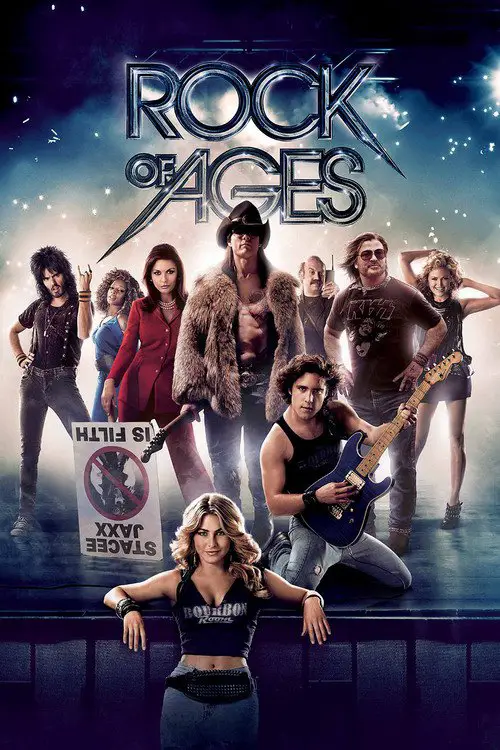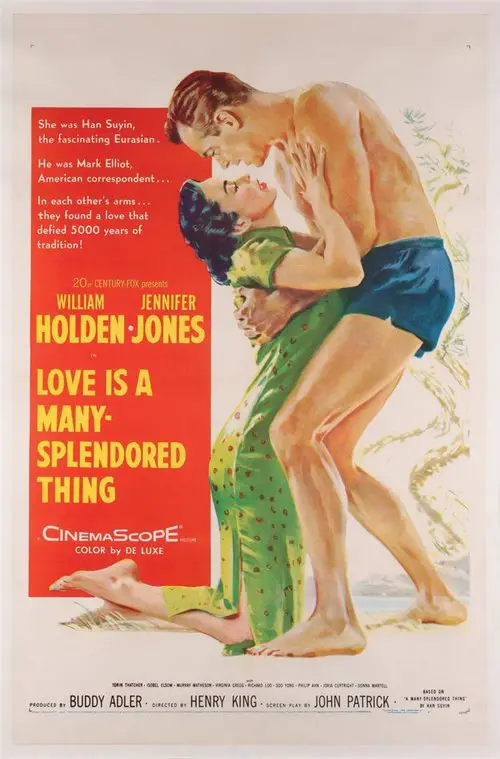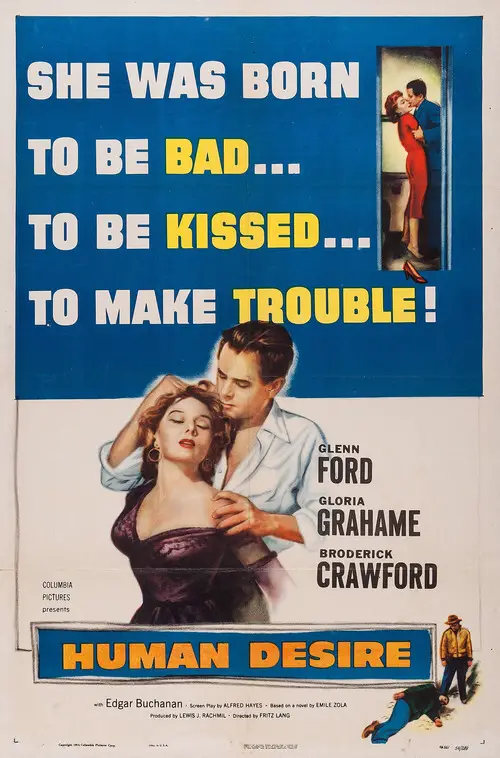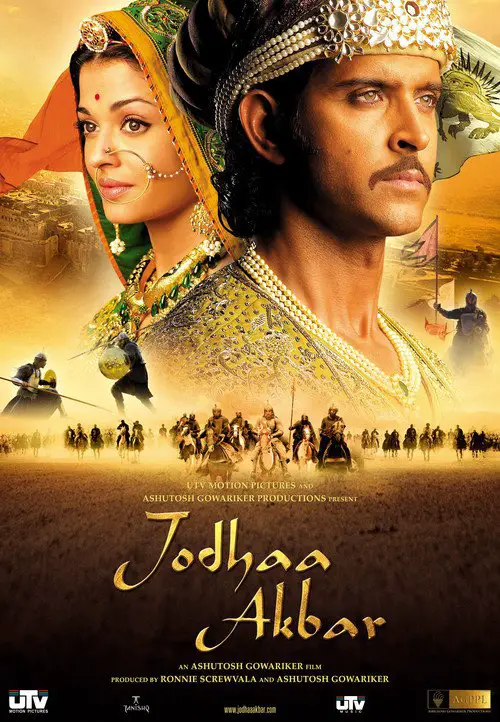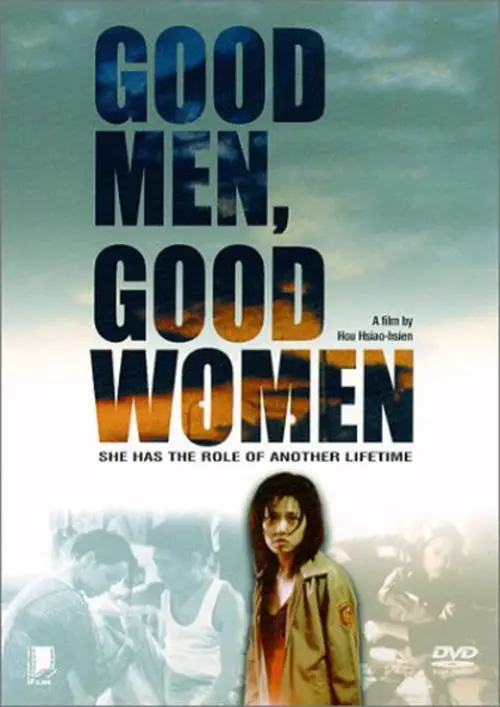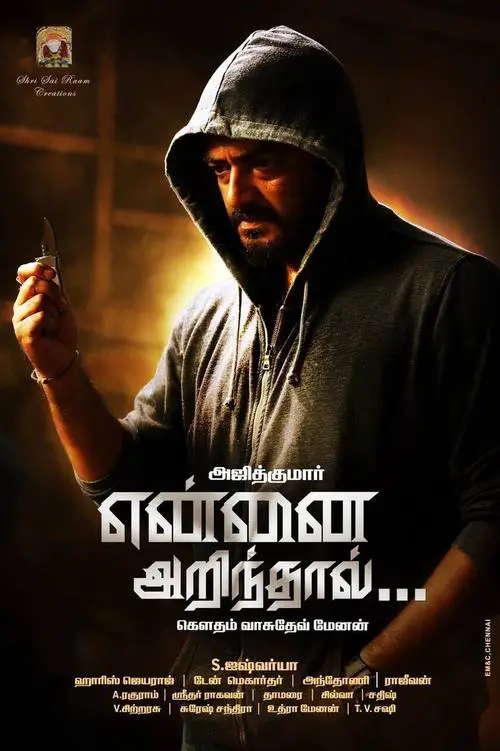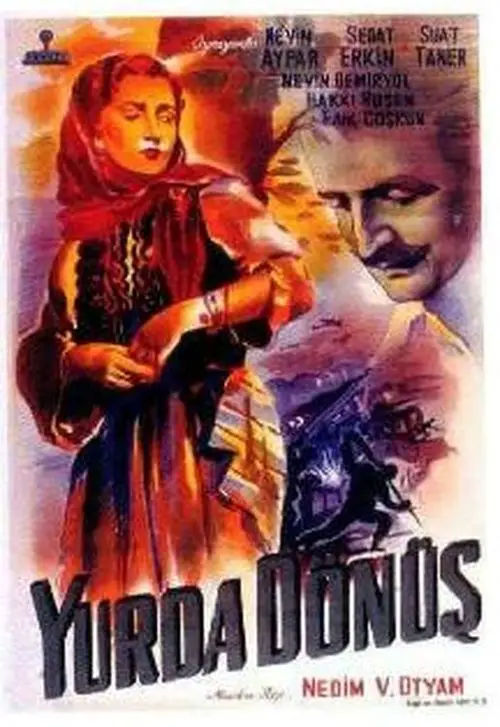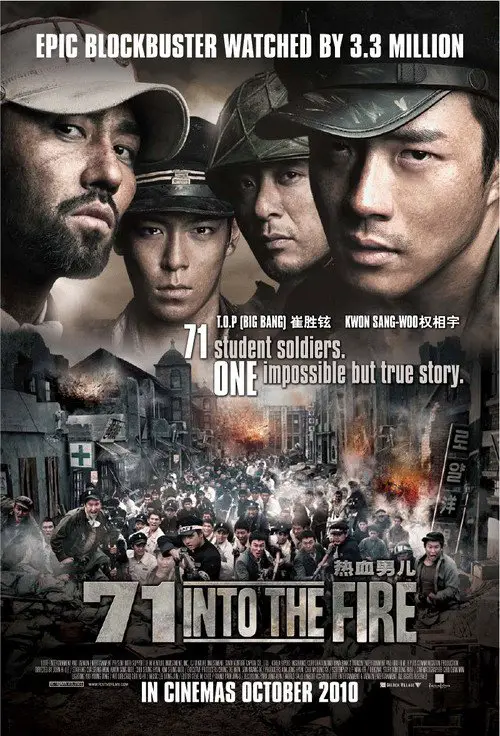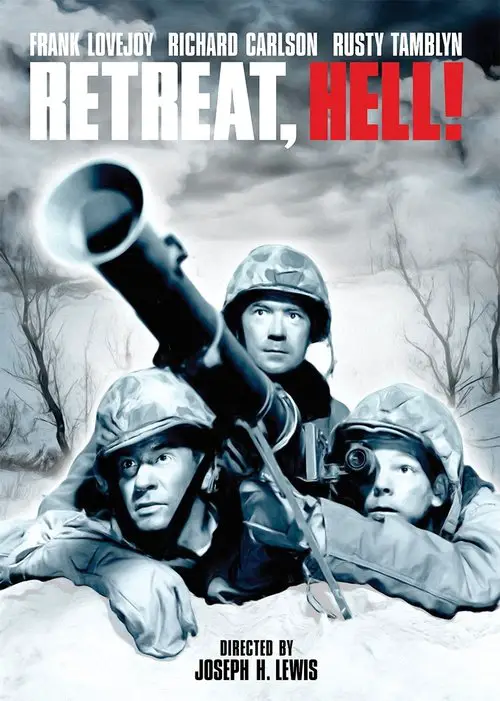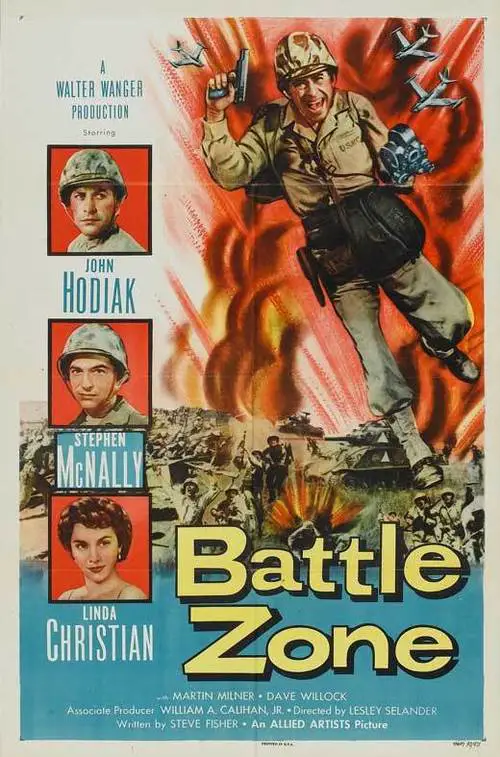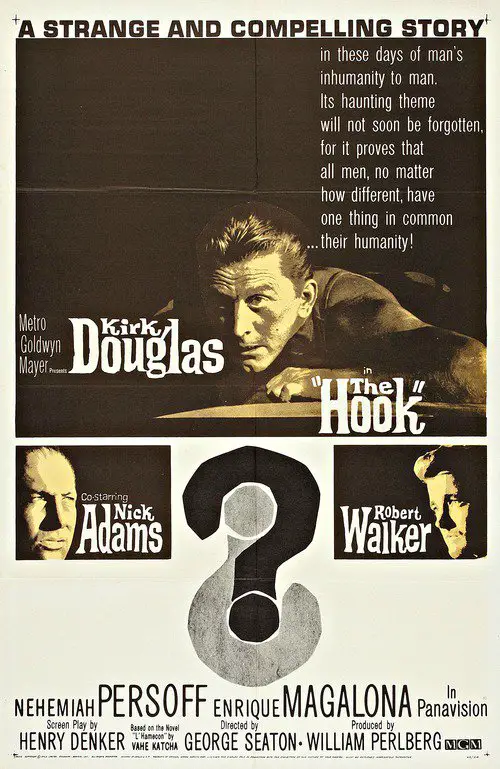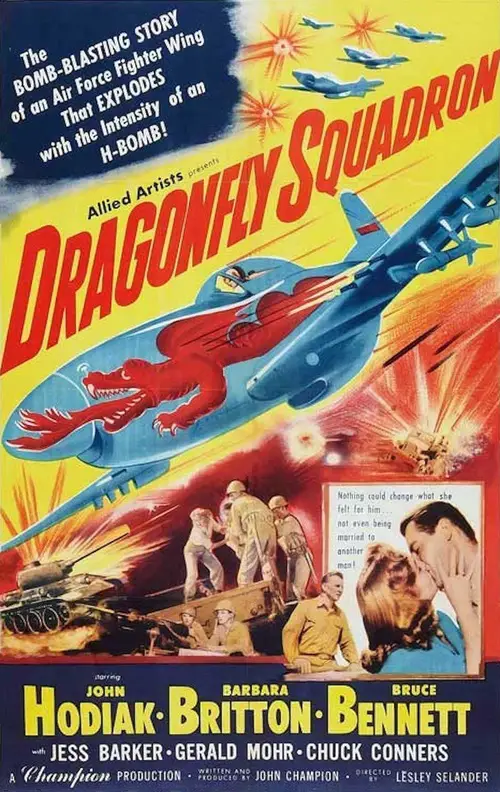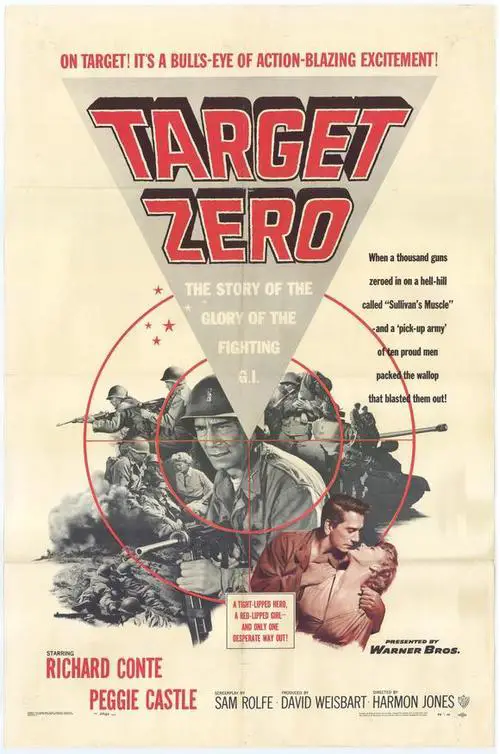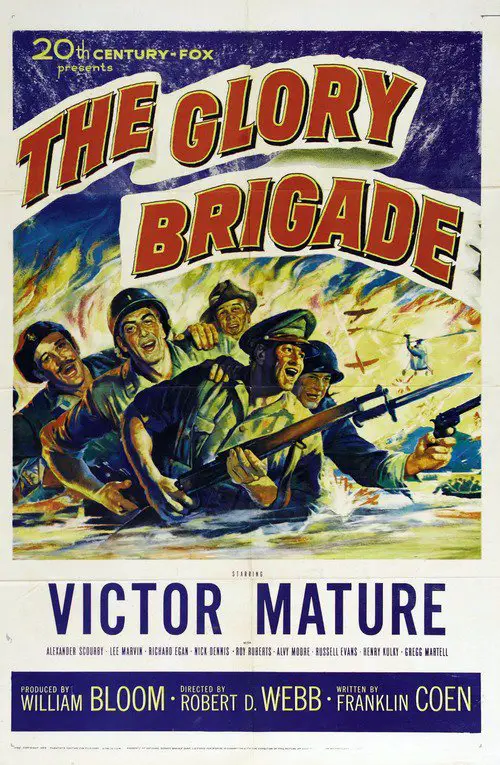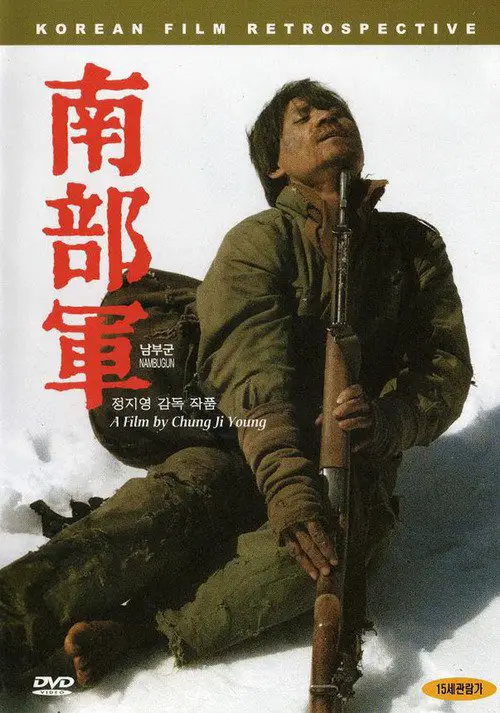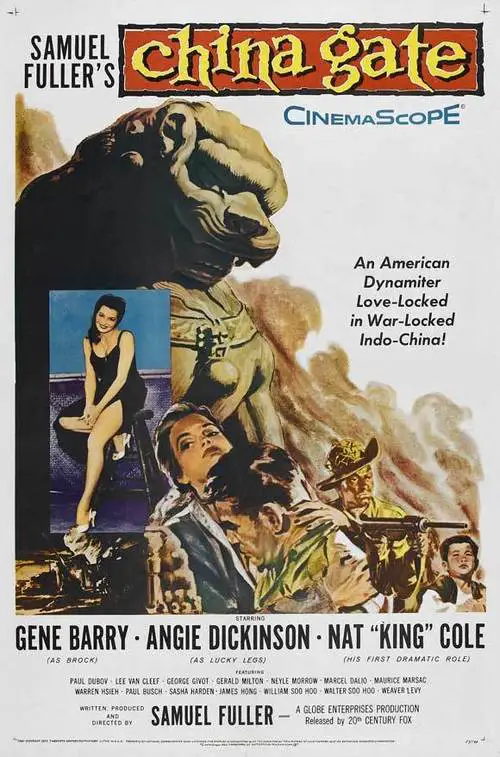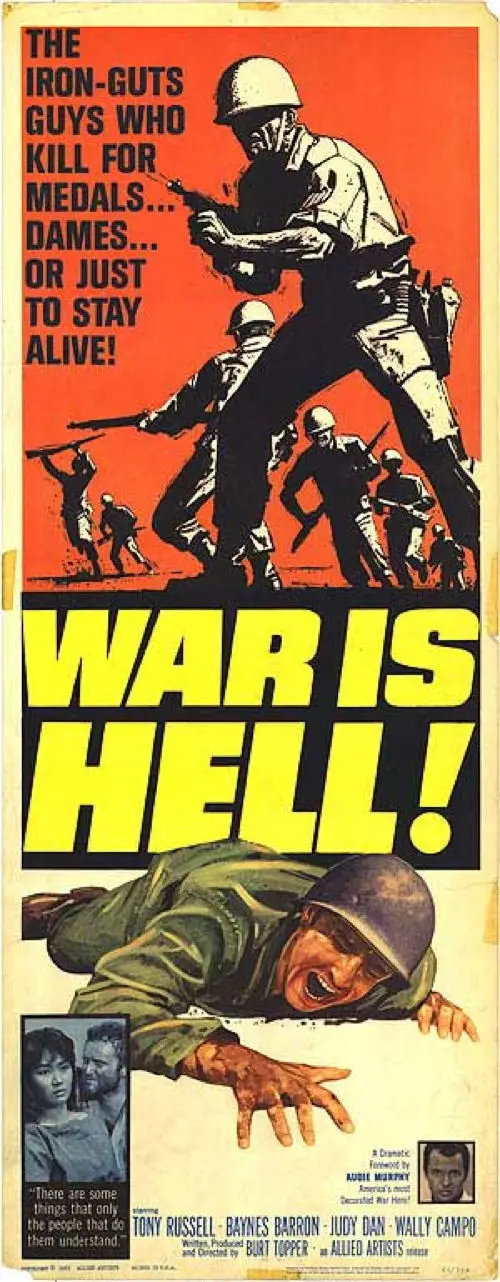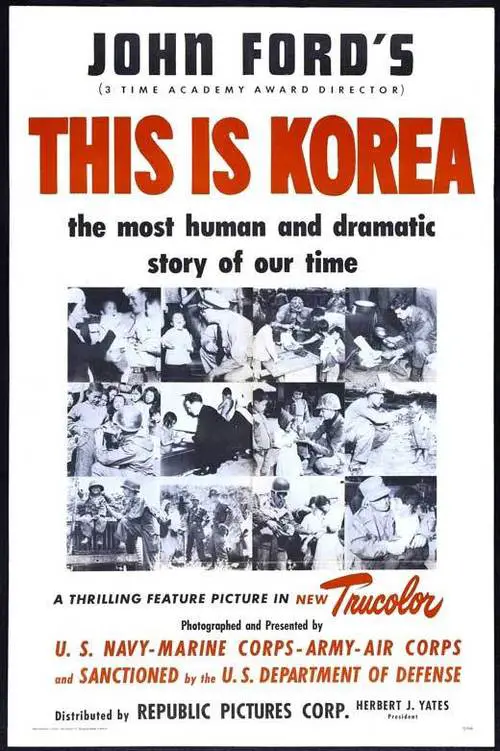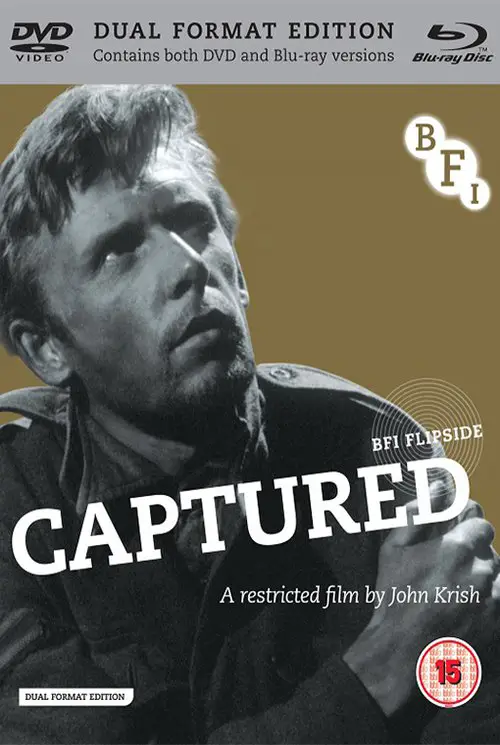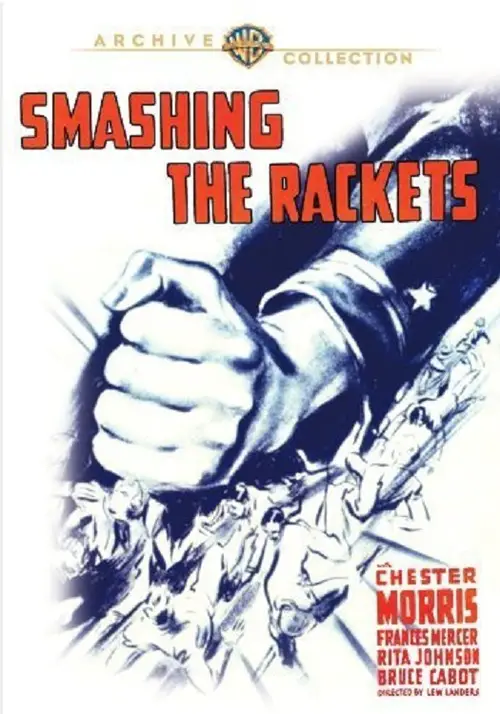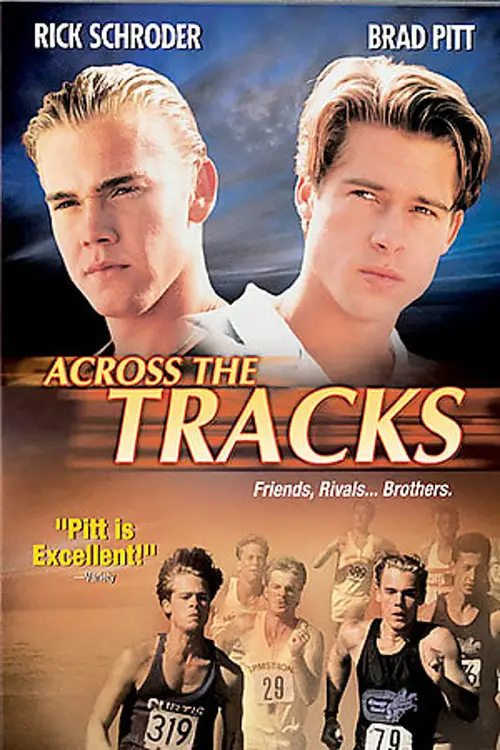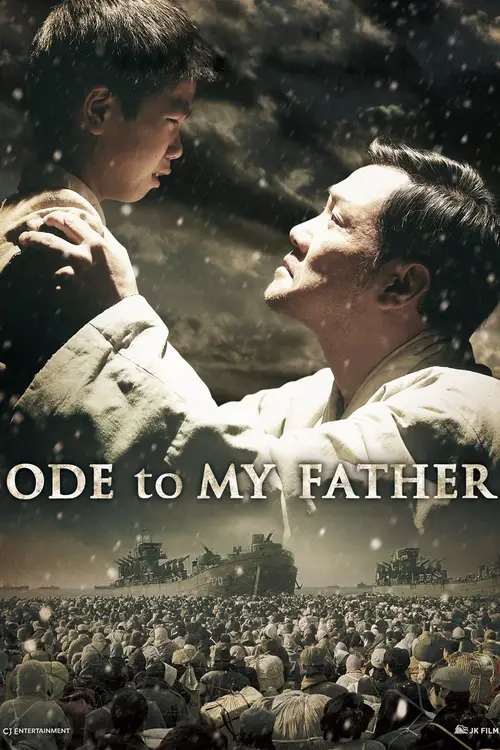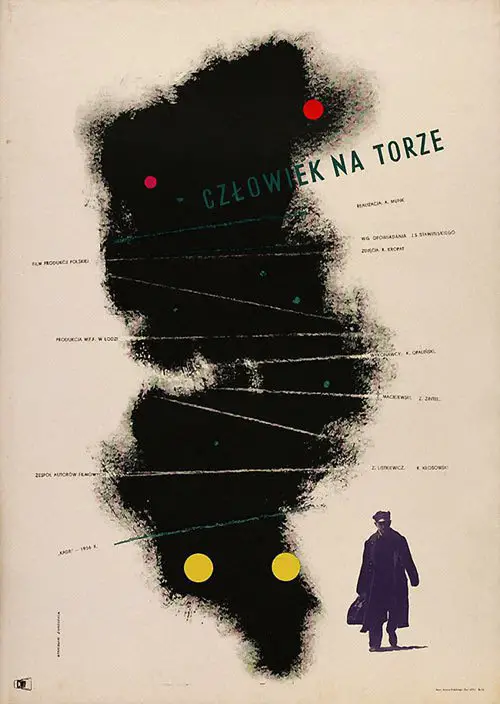The Rack (1956)
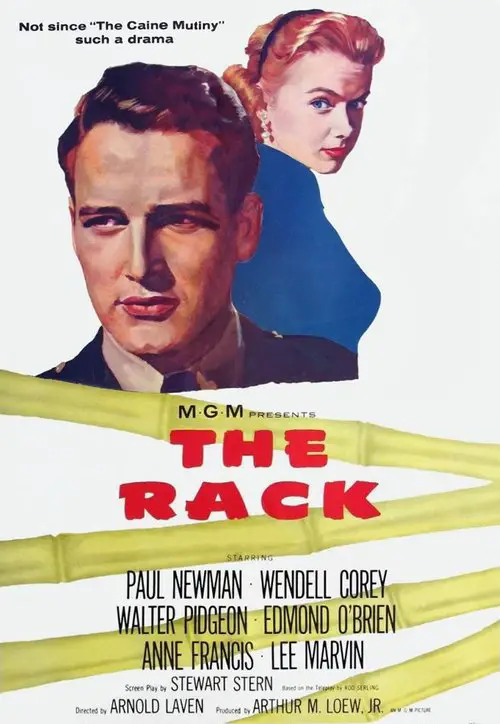
Similar movies
With its electrifying flight sequences and high-powered cast, The Hunters is a mesmerizing film based on the best-selling novel by veteran fighter pilot James Salter. Set during the height of the Korean War, the story centers on Major Cleve Saville (Robert Mitchum), a master of the newly operational F-86 Sabre fighter jets. But adept as he is at flying, Saville¹s personal life takes a nosedive when he falls in love with his wingman¹s (Lee Philips) beautiful wife (May Britt). To make matters worse, Saville must cope with a loud-mouthed rookie (Robert Wagner) in a daring rescue mission that threatens all their lives in this well-crafted war drama.
The story of a US Air Force major who was captured during the Korean War, and cracked signing a confession. After his release he ultimately arrives at Edwards Air Force base and works for his old buddy, now base commander. And runs into an old love forming the romantic triangle sub plot. But the main story line is the testing of high speed aircraft and the two main characters restoring their trust in each other. The aviation story line centers on the testing of the testing of the Gilbert XF-120 fighter, which suffers structural problems. And who will test the rocket powered X-2, designed to fly to the edge of space.
Young Park Seol-Hee is eagerly planning her wedding to a young anti-Communist activist when the North Koreans invade. Her fiancé is forced to flee, leaving her behind with her family in their tiny, rural South Korean village. Rather than resist the North Korean regiment that comes to occupy the area, the townspeople (to Seol-Hee's dismay) decide to cooperate with them in order to ensure their own survival. The North Koreans, however, turn out not to be all that Seol-Hee expected. She soon realizes that there is a history between her family and that of the regiment's leader, Lieutenant Kim Jeong-woong. In between the hilarious day to day antics of Seol-Hee's eccentric family and the hard realities of war, the attachment between Seol-Hee and Jeong-woong grows. As the occupation continues, Jeong-woong becomes torn between trying to follow the increasingly harsh orders from his general and protecting the people that he has come to love and care for so much.
In 1951 ceasefire is declared, but two remaining armies fought their final battle on the front line Towards the end of the Korean War, a South Korean battalion is fiercely battling over a hill on the front line border against the North in order to capture a strategic point that would determine the new border between two nations. The ownership of this small patch of land would swap multiple times each day. Kang is dispatched to the front line in order to investigate the tacit case thatâs been happening there. But he gets spiraled into the war thatâs more terrifying than death itself when he meets his friend Kim, who has transformed into a war machine, and his unit. As the countdown for ceasefire begins, both sides become more vicious, resulting in deaths of countless lives until the last man could claim the land.
One of the world's most acclaimed comedies, MASH focuses on three Korean War Army surgeons brilliantly brought to life by Donald Sutherland, Tom Skerritt and Elliott Gould. Though highly skilled and deeply dedicated, they adopt a hilarious, lunatic lifestyle as an antidote to the tragedies of their Mobile Army Surgical Hospital, and in the process infuriate Army bureaucrats. Robert Duvall, Gary Burghoff and Sally Kellerman co-star as a sanctimonious Major, an other-worldly Corporal, and a self-righteous yet lusty nurse.
During the Korean War, the lieutenant in charge of a Marine rifle platoon is killed in battle. Before he dies, he places the platoon's sergeant, who's black, in charge. The sergeant figures on having trouble with two men in his platoon: a private who has much more combat experience than he does, and a racist Southerner who doesn't like blacks in the first place and has no intention of taking orders from one. Written by [email protected]
In Korea, on 6 September 1950, Lieutenant Benson's platoon finds itself isolated in enemy-held territory after a retreat. Soon they are joined by Sergeant Montana, whose overriding concern is caring for his catatonic colonel. Benson and Montana can't stand each other, but together they must get the survivors to Hill 465, where they hope the division is waiting. It's a long, harrowing march, fraught with all the dangers the elusive enemy can summon.
The story of jet pilots flying over Korea by day, from their Itazuke Air Base in Japan, and of their wives, on station with them, who have dinner ready when they return. Jane Carter (Coleen Gray), a reporter for a large newspaper syndicate arrives... she's also the estranged wife of the assistant squadron commander, Colonel Gil Manton (Robert Stack.) At first, she goes at her assignment of getting a story on the pilots wives with the same ruthlessness and persistence that broke up her marriage - but a mirror isn't needed to peek around the corner to where this one is headed.
Inspired by a true story. Jun Shik works for Tatsuo's grandfather's farm while Korea is colonized by Japan, but he has a dream to participate in Tokyo Olympics as a marathon runner. Tatsuo also aims to become a marathon runner, so the two are in rivalry. But war breaks out and they both are forced to enlist in the army. Tatsuo becomes the head of defense in Jun Shik's unit and he devises a scheme but fails. Jun Shik and Tatsuo are captured by the Soviets. They run away but soon are captured by Germans and forced to separate. In 1944, they meet again at the shores of Normandy.
Military investigator Colonel Edwards is assigned a case involving Major Cargill, a Korean War POW who is accused of treason. Although Cargill admits his guilt and Edwards' superiors are impatiently pushing Edwards to move this case to court martial, Edwards becomes convinced of Cargill's innocence.
In 1950, amidst the ravages of the Korean War, Sergeant Süleyman stumbles upon a a half-frozen little girl, with no parents and no help in sight. Frantic, scared and on the verge of death, this little girl captures the heart of Süleyman, who risks his own life to save her, smuggling her into his Army base and out of harms way. Not knowing her name and unable to communicate with her, Süleyman names her Ayla, in reminiscence of the moon on the fateful night during which they met. The two form an instantaneous and inseparable bond, and Ayla, almost effortlessly, brings an uncanny joy to the Turkish brigade in the grip of war. As the war comes to a close however, Süleyman's brigade is told that they will be returning home. Süleyman cannot bear abandoning Ayla, and does everything within his power to take her with him. After repeated failure, he is forced to give Ayla to an orphanage, but doesn't give up on the hope of one day reuniting with her. Will the two ever get back together?
1983. Tom Highway is a well-decorated career military man in the United States Marine Corps, he who has seen action in Korea and Vietnam. His current rank is Gunnery Sergeant. His experiences have led him to become an opinionated, no nonsense man, who is prone to bursts of violence, especially when he's drunk, if the situation does not suit him, regardless of the specifics or people involved. Because of these actions, he has spent his fair share of overnighters behind bars. Close to retirement, one of his last assignments, one he requested, is back at his old unit at Cherry Point, North Carolina, from where he was transferred for insubordination. He is to train a reconnaissance platoon. His superior officer, the much younger and combat inexperienced Major Malcolm Powers, sees Highway as a relic of an old styled military. Highway's commanding officer, Lieutenant Ring, the platoon leader...
A young Army nurse, Lt Ruth McGara (June Allyson), newly assigned to the 66th MASH during the Korean War, attracts the sexual attention of the unit's commander Dr. (MAJ) Jed Webbe (Humphrey Bogart). Webbe, who has a drinking problem, at first wants a "no strings" relationship. McGara is warned by the other nurses of Webbe's womanizing ways. Despite these initial handicaps, their love flourishes against a background of war, enemy attacks, death and injury. The relationship deepens and uplifts both characters.
The story of a soldier faced with mission of executing prisoners in an unspecified place and time. The film follows a hot summer day in the life of Džoni, a twenty-year-old recruit, who is sent to an abandoned farm on an unknown mission. The soldiers wait to battle unnamed terrorists, but instead, a bus full of prisoners arrives to the barracks. The commander orders the soldiers to execute the prisoners. At first, Džoni is shocked by the cruel killings, but as more prisoners arrive, he begins to enjoy the executions.
Using refugees as human shields, North Korean troops advance on Col. Steve Jankowski and his dug-in troops. Hoping to turn the throng back, Jankowski orders his gunners to fire warning shots short of the advance. Again and again the cannons roar, aiming closer each time. The approach continues: Jankowski must make an agonizing decision. Robert Mitchum portrays Jankowski, a leader of U.S. forces that are part of the United Nations Coalition pushing back against the invasion south of the 38th Parallel. Tay Garnett (Bataan, The Cross of Lorraine) directs, effectively integrating documentary footage of the conflict. Ann Blyth plays a UN official drawn to Jankowski. And it wouldn't be a war flick without a tough top kick -- a role Charles McGraw fits perfectly.
In the DMZ separating North and South Korea, two North Korean soldiers have been killed, supposedly by one South Korean soldier. But the 11 bullets found in the bodies, together with the 5 remaining bullets in the assassin's magazine clip, amount to 16 bullets for a gun that should normally hold 15 bullets. The investigating Swiss/Swedish team from the neutral countries overseeing the DMZ suspects that another, unknown party was involved - all of which points to some sort of cover up. The truth is much simpler and much more tragic.
The film revolves around five individual characters and the events in their life, that, on the one hand, changes everything in their respective lives, which the film's title refers to, and, on the other hand, also brings together these people. It is an anthology film, that contains two parallel moving stories, which are connected by a freak accident in Chennai. A young architect, falls in love with a young beautiful pediatric doctor, runs after her and tries to convince her to marry her, while, simultaneously, a morose ex-football coach troubles a software engineer by vowing to kill his eight-year-old son. How these characters get connected and confronted through the accident forms the crux of the story.
Air Force Major Lloyd Gruver (Marlon Brando) is reassigned to a Japanese air base, and is confronted with US racial prejudice against the Japanese people. The issue is compounded because a number of the soldiers become romantically involved with Japanese women, in defiance of US military policy. Ordinarily an officer who is by-the-book, Gruver must take a position when a buddy of his, an enlisted man Joe Kelly (Red Buttons) falls in love with a Japanese woman Katsumi (Miyoshi Umeki) and marries her. Gruver risks his position by serving as best man at the wedding ceremony.
A man and a woman meet by accident on a Sunday evening at their childrens' boarding school. Slowly they reveal themselves to each other, finding that each is a widow/widower. Each is slow to reveal anything personal so that each revelation is hidden by a misperception. They become friends, then close friends, and then she reveals that she can't have a lover because, for her, her husband's memory is still too strong. Much of the film is told wordlessly in action, or through hearing one of their thoughts as they go about their day.
Boeun (Moon Geun Young) is an ordinary high school girl who worries about grades and has a crush on her school's baseball team ace, Jungwoo. One day, Boeun's grandfather orders her to marry Sangmin (Kim Rae Won) because of a pact he made with Sangmin's grandfather during the Korean War. Despite the grandchildren's opposition, they are forced to marry because of Boeun's grandfather's strong influence. She pretends that she doesn't have a husband and starts dating Jungwoo. Everything goes smoothly until Sangmin visits Boeun's school as a student teacher. There a teacher called Miss.Kim flirts with Sangmin and she later finds out that Sangmin and Boeun are married.
Jeff Warren, a Korean War vet just returning to his railroad engineer's job, boards at the home of co-worker Alec Simmons and is charmed by Alec's beautiful daughter. He becomes attracted immediately to Vicki Buckley, the sultry wife of brutish railroad supervisor Carl Buckley, an alcoholic wife beater with a hair trigger temper and penchant for explosive violence. Jeff becomes reluctantly drawn into a sordid affair by the compulsively seductive Vicki. After Buckley is fired for insubordination, he begs her to intercede on his behalf with John Owens, a rich and powerful businessman whose influence can get him reinstated.
Intended as the concluding film in the trilogy on the modern history of Taiwan began with Beiqing Chengshi (1989), this film reveals the story through three levels: a film within a film as well as the past and present as linked by a young woman, Liang Ching. She is being persecuted by an anonymous man who calls her repeatedly but does not speak. He has stolen her diary and faxes her pages daily. Liang is also rehearsing for a new film that is due to go into production soon. The film, entitled Haonan Haonu, is about a couple Chiang Bi-yu and Chung Hao-tung who returns to China to participate in the anti-Japanese movement in China in the 1940s and are arrested as communists when they go back to Taiwan.
A civil war broke out in the 1950's between North and South Korea which changed the country forever. 71: Into the Fire centres on the struggles of 71 student soldiers that fought through the Korean War. Using real people and events, the film exposes the personal and physical conflicts that these students faced when finding themselves on the last line of defence in Pohang girlsâ middle school, needing to hold out until back up from other Korean troops and the Allies arrived.
Recruits head to the front lines towards the close of the Korean War. The interaction between two of the soldiers...an idealistic newcomer and a psychotic who goes on one-man patrols slitting enemy throats under cover of night...and the orphan boy who comes between them is examined. The Cease-Fire brings the three to a final resolution.
During the Korean War Lt. Sam Pryor volunteers his platoon to escort Greek troops to perform a reconnaissance mission behind Communist lines. Due to his Greek heritage Pryor is initially proud to accompany the Greek contingent but his feelings change to scorn and mistrust when what he believes is cowardice shown by the Greek soldiers and their leaders results in the near annihiliation of his own platoon. An uneasy alliance is maintained between the US and Greek troops as the enemy's true objective is learned.
Jim 'Socker' Conway, former boxer and FBI hero, is maneuvered for political reasons into a do-nothing job in the district attorney's office. Meanwhile, he meets wild debutante Letty Lane, girlfriend of mob mouthpiece Steve Lawrence; and Letty's much nicer sister Susan. Now the slot machine gang brutally beats Jim's friends Franz and Otto. And Jim finds a way to use his nominal position to go into the racket- busting business. But his success puts Letty in deadly peril...
When Billy returns from reform school he has to attend a different high school at the other side of town. He tries to start with a clean slate but his old rival doesn't make it easy on him and his buddy Louie tries to make him go astray again. His brother Joe, quite the opposite of Billy, is a good runner and determined to win a track scholarship. He suggests Billy to join his school's track team, which pits the two brothers against each other.
Amid the chaos of refugees fleeing the Korean War in December 1950, a young boy, Duk-soo, sees his fate change in the blink of an eye when he loses track of his younger sister and he leaves his father behind to find her. Settling at Gukje Market in Busan, Duk-soo devotes himself to his remaining family, working all manner of odd jobs to support them in place of his father. His dedication leads him first to the deadly coal mines of Germany, where he meets his first love, Youngja, and then to war-torn Vietnam in this powerful generational epic about one manâs personal sacrifices.
In 1950, at night, a passenger train kills a man on the tracks. He is Orzechowski, an engineer since 1914. An inquiry immediately follows. Testimony takes the form of flashbacks. Tuszka, the station master, believes Orzechowski was a saboteur; at least one on the inquiry panel agrees. Zapora, the young engineer on the train that hit Orzechowski, gives more complicated testimony about the dead man - stiff-necked, proud, imperious, critical of Zapora and other younger workers. The signalman at the crossing where Orzechowski died also testifies. Can the panel arrive at the truth in a world where workers unite, inferior coal is a badge of honor, and the old order is suspect?
© Valossa 2015–2025
| Privacy Policy

